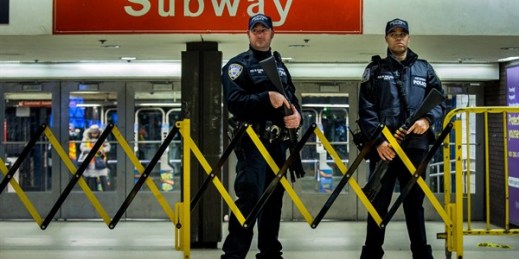
The aftermath of Monday’s terrorist attack in New York was a case of both good news and bad news. That the city essentially shrugged off an attempted suicide bombing in the subway that only seriously injured the bomber himself demonstrated a salutary resilience and sangfroid, as defeating terrorism requires in part a refusal to be terrorized. That the attack was so rudimentary and amateurish is a testament to the broad success of American and European approaches to counterterrorism that make more sophisticated attacks prohibitively difficult to mount. But the fact that such attacks don’t generate much surprise anymore—whether in New […]

